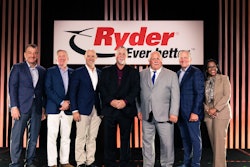
A recent U.S. Supreme Court decision that ruled in favor of a driver’s religious accommodation has law experts advising fleets to take a closer look at their HR policies and procedures.
Late last month, the highest court in the country ruled unanimously in favor of former United States Postal Service driver Gerald Groff whose requests to have Sundays off were rejected on the grounds that it created a scheduling hardship that frustrated his co-workers.
A prior Supreme Court ruling in 1977 allowed employers to cite minimal causes of hardship as a reason for rejecting a religious accommodation. That has since changed with the court’s latest ruling.
"An employer must show that the burden of granting an accommodation would result in substantial increased costs in relation to the conduct of its particular business," Justice Samuel Alito wrote in part in the court’s opinion.
While “substantial increased costs” have not been clearly defined, in the meantime Fisher & Phillips attorney Andrew Hoag whose area of practice includes employment discrimination and harassment said companies should not only revisit their policies regarding religious accommodation but also revisit prior decisions. Hoag pointed out that the court’s decision applies to companies with 15 or more employees.
“I think it’d be very wise for employers to have their HR departments or their in-house legal departments to go back and consider whether or not requests for religious accommodation would come out a different way under this new standard because presumably there might still be the same employees or similar situated employees who might request similar accommodations,” said Hoag who practices in California. “And since the way the metric that we evaluate requests for accommodations has now changed, it certainly seems prudent to go back and reconsider whether under the new analysis the response to those requests for accommodations should change as well.”
[Related: Fleets file lawsuit over new emissions standard]
Attorney Angelo Fillipi, who practices employment law in Florida at Kelley Kronenberg, said workplace-related religious cases had already been on the rise with mandated COVID vaccinations.
“This uptick resulted in the number of religious discrimination claims approaching 20% of charges filed with the EEOC,” Fillipi said. “Historically, the percentage of religious discrimination charges with the EEOC ran between 2% to 3%. With the Supreme Court’s decision in Groff v. Dejoy, it is likely that requests for religious accommodation will increase in the workplace. This will likely result in increased litigation in this area in the coming years.”
Hoag said training HR personnel on the new law is important so that a uniform approach is taken regarding accommodation requests. Verifying an employee’s religious beliefs within a timely and reasonable manner is fine.
“It shouldn't be a case where every agent of the company sits down and starts interrogating whether or not an employee has a sincerely held religious belief,” Hoag said. “But if there's reason to believe that the profession of the religious belief is not sincerely held, like it comes on the tail end of a denial of a vacation request and then all of a sudden an employee says, ‘Well, I need every Sunday and Saturday off because of my religion,’ that tends to draw into question the sincerity of that religious belief.”
[Related: Start working on CARB requirements now]
Fillipi advises to exercise caution when calling into question the veracity of religious belief.
“Whether an employee sincerely holds a religious belief should not generally be the focus of decision making in this area,” he said. “Employees must give the employer notice of the need for religious accommodation. Employers must then engage in an interactive process to accommodate. This is an opportunity to discuss the least disruptive and costly means to resolve the accommodation request.”
Hoag pointed out that the U.S. Equal Employment Opportunity Commission does provide employers with recourse in case they suspect that an employee may be bluffing.
“There's a process that the EEOC permits for employers to sit down with an employee and actually obtain verification of the sincerity of the religious belief where there's reasonable belief to question that professed religious belief,” Hoag said.
For instance, employers who were hit with religious accommodation requests following COVID-19 vaccination mandates did not necessarily approve all requests.
“There was a process whereby employers did not necessarily have to just accept an employee's proffered objection to vaccination based on religion but could verify the veracity of that belief, and sure enough a lot of employees gave up on the profession of that religious belief once an employer reasonably started to request verification of the religious belief and the sincerity of it,” Hoag said.
Hoag added that fleets also need to consider state and local laws when examining religious accommodation requests.
Fillipi and fellow Kelley Kronenberg attorney David Henry pointed out that employers can deny requests for accommodation on the grounds that they endanger the health or safety of employees or clients.
If companies want to reduce the chances of dealing with religious issues altogether Fillip and Henry suggest working only with independent contractors who would ultimately be responsible for determining their own accommodations.
“This arrangement requires nuance and presents additional challenges, but it is one way to avoid this issue,” Henry said.












